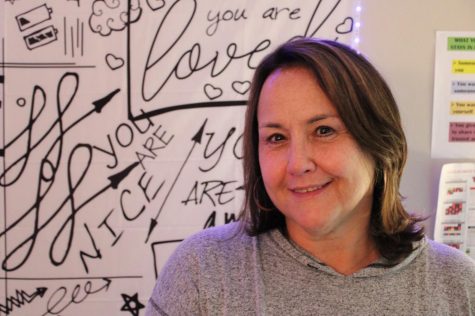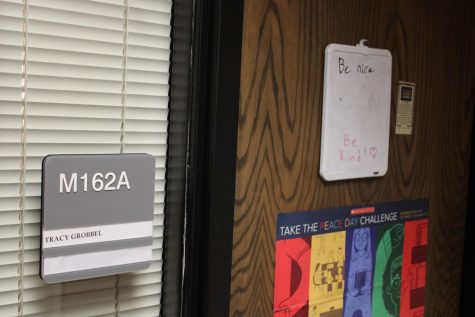Effects of Therapy
Though not talked about often, therapy does have its disadvantages. But, the advantages are just as important, and it’s a great thing that therapy is losing its negative stigma.
With the rise in mental illness awareness, it is very common to hear younger people openly discussing therapy–they chat about it like it’s no big deal. To older generations, on the other hand, going to therapy may have been a sign of weakness, or a sign that they were unfit to work or live. Thankfully, we can now recognize that everyone should be able to attend therapy, diagnosed with a mental condition or not. Everyone has problems. Whether they are as complicated as suicidal thoughts or as simple as managing the stress of day-to-day life, it’s important to talk to someone about them. But, as there is with everything, there are many positives and negatives to therapy.
As it goes for many things, the disadvantages are not the most important part of therapy. The advantages outweigh these, but it’s important to recognize that there is indeed an unfavorable side to attending.
In therapy, a perfect meeting doesn’t exist. You cannot go to a therapist expecting to be ‘healed’ after a week of meeting; therapy takes a long time to come into effect, and sometimes it never does. Plus, the right therapist is hard to find.
School social worker Nancy Mickelson gives some handy advice to students trying out therapy: “If you go and you don’t connect with your therapist within the first couple of sessions, please ask them for a referral. It’s our job to say, ‘Yes, absolutely, I can get you a referral.’ I don’t want you to feel uncomfortable, because you’re not gonna do good work if you’re in there and you’re not comfortable with that person. You can ask for a referral, and you won’t hurt your therapist’s feelings.”

Not only if you are not comfortable with your therapist should you find a new one, but if your therapist isn’t helping you, or you just flat out don’t like them, it’s important to try to find someone you’re able to share details with that maybe you wouldn’t share with anyone else.
Another adverse part of therapy is family issues. Some parents do not allow their children to attend therapy, and others just do not have enough money to afford it. Luckily, due to House Bill 19-1120 in Colorado, minors above the age of 12 can attend therapy without parental consent. Unfortunately, money remains a pertinent issue in people’s access to mental help. On average, therapy costs $90 per session, and just like most services, you get what you pay for. While there are therapists who are completely willing to help people for free, there are also many untrustworthy sources out there. School social worker Tracy Grobbel assures students, “Anybody could really say they’re a therapist and it’s important to do research. My recommendations to families and kids are always certified and educated.”

Subsequently, if someone’s illness is too ‘severe’, therapy has less of an effect. Fortunately, there are alternatives for people whose mental health is declining or has declined. Everyone deserves to live, no matter how deeply rooted their mental illness is. Mickelson is a big advocate for institutions like psychiatric hospitals, as she used to work at one. She states that if someone feels unsafe and unhappy with their life, mental institutions are a great place to rest their mind and talk to someone who wants to help them. She also mentions that it’s a great place to get referred for medication.
“There’s so many good things about mental institutions. If you happen to have been in one and you didn’t have a good experience, and currently feel as though you can’t go on, please try another one or talk to somebody who might be able to help you with an alternative route,” said Mickelson. Along with mental institutions, there are other options that can help someone who is struggling, such as inpatient programs and outpatient programs. With outpatient programs, one can get help at a hospital for half a day, for example, and then go home for the rest of the day. With inpatient programs, like psychiatric hospitals, people can stay at the hospital for however long they need in order to feel better. Regardless of the details, all of these options provide an opportunity for patients to rest their minds without the stress of peers, school, or work.
In addition to the existence of mental institutions and programs to help people get the assistance and guidance they need, there are many positives of therapy. In a closed room with only a person in need of help and one who is willing to help, it’s easy to get unbiased opinions.
“It’s a new perspective that’s outside your family, outside your friends, with an expert who’s trained in what kind of coping strategies work for different reasons. Being able to problem-solve with someone who is away from the normal stressors of everyday life, someone who’s neutral, is important because parents and friends are gonna have different perspectives,” said Grobbel. People such as friends and family are going to have an opinion on one’s issues; their opinion may be well-intentioned, but they are not professionals — a misunderstanding friend could end up worsening someone’s situation if they happen to convey wrong information.

Another benefit of therapy is that mental health professionals can prescribe medications. While some therapists disagree with this pathway, especially for younger patients, Mickelson advocates that there are reasons that medication exists and is suggested for people with mental illness. “Sometimes you need a little something else, depending on how deep your depression is, or maybe your anxiety,” she expressed. “Maybe you just need a little bit of help to be able to [manage], and sometimes you don’t. It’s just a personal choice and deciding how your body feels.” She adds, though, that medicine works best alongside therapy. While someone may need that extra help to clear away some of the fog in their mind, it’s best to use medication in order to help them learn new coping mechanisms that perhaps they could not before.
While it may not always seem as though therapy is the best option, the positives heavily outweigh the negatives. According to the National Library of Medicine, 64% of people leave therapy feeling better than they were when they first entered. Without therapy, the suicide rates would likely be much higher than they already are, and more people would likely develop mental illnesses such as depression and anxiety.
To conclude, Mickelson leaves you with an important message: “Please, just take a pause and take care of yourself. If you need help, please reach out. Find your support people in the building and if you don’t have one, please come to me and I’ll help you find them.”
Whether it’s a teacher you are close to, a counselor, or Mickelson herself, she urges students to open up –sometimes a difficult feat even on the easiest days.
“Give yourself a ‘good job me,’ even just for coming to school,” added Mickelson. “It can be rough some days, but just being here is a beautiful gift to yourself. Seek out outside help for counseling, if you’re feeling all the feels.” If anybody needs help finding a counselor, contact Mickelson and she will be happy to send resources, in-school or outside of school.

Ren is a senior this year at Eaglecrest. It is their second year as a part of Nest Network, but their first as Magazine Manager. Ren loves writing about...






